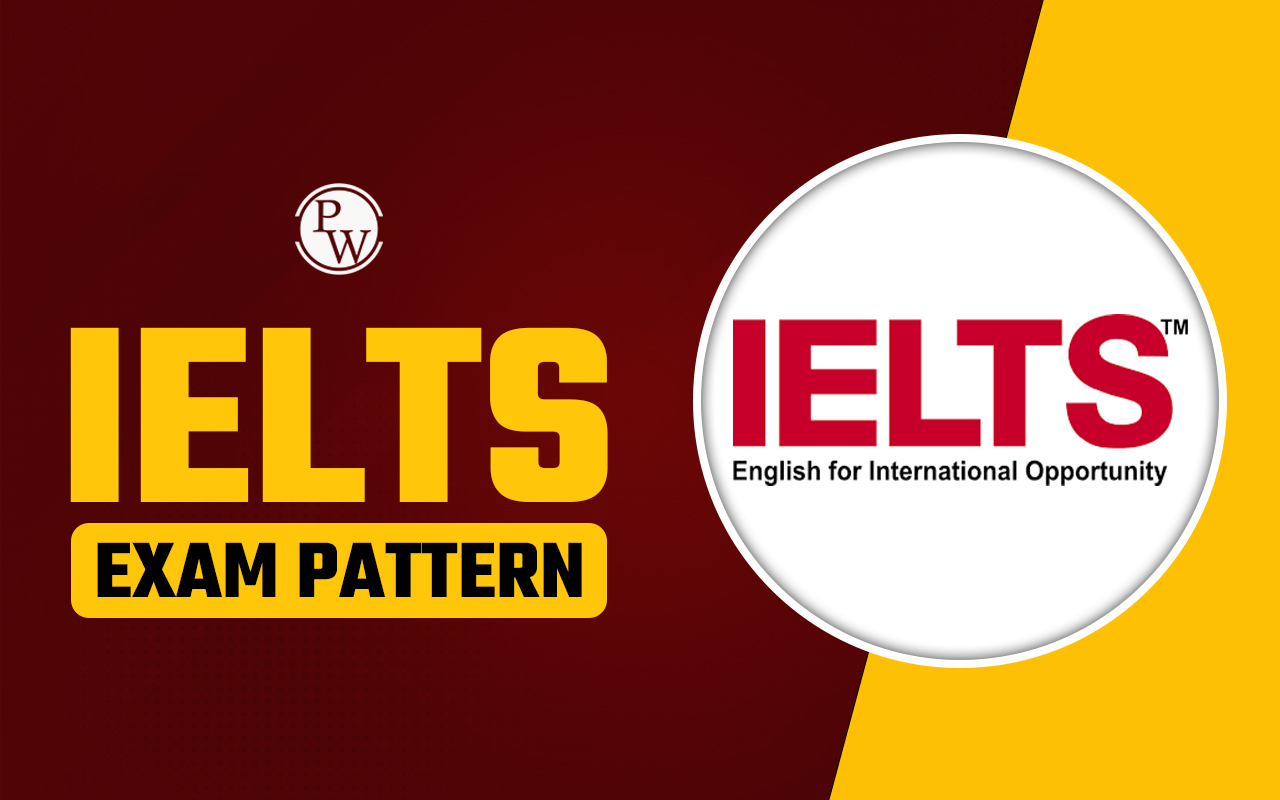
Explore IELTS Online Courses - Enroll Now
IELTS Sample Essay Structure
To achieve a high band score, following a clear structure is essential. The recommended format is:
-
Introduction – Paraphrase the question and present your thesis.
-
Body Paragraph 1 – First main idea with explanation and examples.
-
Body Paragraph 2 – Second main idea with explanation and examples.
-
Optional Paragraph – A third idea or counterargument, if needed.
-
Conclusion – Summarise the essay and restate your opinion clearly.
Common IELTS Essay Types
IELTS essays can be divided into five broad categories. These are:
-
Opinion Essays (Agree or Disagree)
-
Discussion Essays (Discuss Both Views and Give Your Opinion)
-
Advantages and Disadvantages Essay
-
Double Question Essay
1. Opinion Essay:
Do you agree or disagree that governments should spend more on public transport than on roads?
-
Express a clear opinion.
-
Support your stance with two main points.
-
Use strong linking phrases like “I believe,” “It is evident that,” etc.
2. Discussion Essay:
Some people believe that professional workers such as doctors and teachers should be paid more than sports and entertainment personalities. Discuss both views and give your own opinion.
-
Explain both perspectives.
-
Give your own opinion in the conclusion or third body paragraph.
-
Stay balanced and objective.
3. Advantages/Disadvantages Essay:
What are the advantages and disadvantages of using technology in education?
-
Clearly state pros and cons.
-
Avoid giving your opinion unless asked.
IELTS Writing task 1 vs. Writing task 2
4. Problem/Solution Essay:
Traffic congestion is becoming a major concern in cities. What are the problems, and how can they be solved?
-
Identify problems in the first body paragraph.
-
Suggest practical solutions in the second.
5. Double Question Essay:
Some people believe that children should learn history in school. Others believe that learning subjects such as math and science is more important. Why do people have different views? What is your opinion?
-
Address both questions equally.
-
Provide balanced analysis and a personal view.
IELTS Discussion Essay Sample Question and Model Answer
Question: Some people believe that online education is more effective and convenient than traditional classroom education, while others think it can never replace in-person learning. Discuss both views and give your opinion.
Model Answer:
With the rise of technology, online education has gained immense popularity, especially after the global pandemic. While some believe that online learning offers unmatched flexibility and accessibility, others argue that it cannot substitute the traditional classroom experience. This essay will examine both perspectives before expressing a personal viewpoint.
On one hand, online education provides convenience and flexibility to learners across the globe. Students can attend classes from anywhere, saving time and travel costs. Moreover, e-learning platforms offer a wide range of courses and materials that cater to diverse learning needs. For example, platforms like Coursera or edX provide university-level education at a fraction of the cost, which is highly beneficial for learners in remote or underdeveloped regions. Additionally, recorded lectures and downloadable resources allow students to learn at their own pace.
On the other hand, traditional classroom learning promotes direct interaction between students and teachers, which helps in better understanding and engagement. Face-to-face communication fosters collaborative learning, encourages immediate feedback, and builds discipline. It also promotes social interaction, teamwork, and public speaking — essential skills for personal development. For instance, students participating in group discussions or debates in a physical classroom often develop stronger critical thinking and communication skills.
In my opinion, both forms of education have their merits, but a blended approach may be the most effective. Online learning provides accessibility and flexibility, while classroom education offers structure and interpersonal development. Combining the two can create a balanced, enriched learning experience for students.
While online education is convenient and cost-effective, traditional classrooms offer deeper engagement and personal development. Therefore, a hybrid model that integrates the strengths of both can be the future of education.
| IELTS Reading Band Score | IELTS Listening Band Score |
| IELTS Speaking Band Score | IELTS Writing Band Score |
IELTS Agree Disagree Essay Sample Question with Answer
Question: Some people believe that students should be required to learn a foreign language in school, while others think it should be optional. To what extent do you agree or disagree?
Sample Answer: Learning a foreign language in school has become an important part of modern education. While some believe that it should be optional based on student interest, I strongly agree that it should be a mandatory part of the school curriculum.
Firstly, learning a foreign language helps students improve their communication skills and opens doors to global opportunities. In today’s interconnected world, many companies seek professionals who can speak multiple languages. For example, knowing languages like French, German, or Mandarin can enhance employment prospects and allow individuals to work or study abroad.
Secondly, it promotes cultural understanding and tolerance. When students learn a new language, they also learn about different customs, traditions, and ways of life. This helps reduce stereotypes and builds respect for other cultures from an early age.
Moreover, research shows that students who study additional languages tend to perform better in other academic areas. Language learning improves memory, multitasking, and problem-solving skills, making students more well-rounded learners.
Opponents argue that making it compulsory adds pressure on students who may already have a heavy academic workload. However, this challenge can be managed by integrating language learning in a fun and interactive manner, rather than making it overly rigorous.
In conclusion, I believe that learning a foreign language should be mandatory in schools. It equips students with valuable life skills, boosts their academic performance, and fosters global awareness—qualities essential for success in the 21st century.
Also Read:
Tips for Writing a High-Scoring IELTS Essay
Here are some tips to help you write a well-structured, high-scoring IELTS essay:
-
Identify the Essay Type: Before you begin writing, carefully analyze the question to determine the essay type—Opinion, Discussion, Problem-Solution, Double Question, or Agree/Disagree. This understanding helps you structure your response accurately.
-
Craft a Clear Introduction and Conclusion: Begin your essay with a concise introduction that clearly states your position or outlines both sides (as required). End with a well-rounded conclusion that summarizes your key points and reinforces your viewpoint.
-
Structure Your Ideas Logically: Organize your essay into clear paragraphs. Each paragraph should focus on a single idea, supported by relevant examples and explanations. This improves coherence and cohesion, which are key IELTS scoring criteria.
-
Enhance Your Vocabulary: Use a wide range of vocabulary to express your thoughts more precisely. Avoid repetition—use synonyms where appropriate. For example, instead of using "animals" repeatedly, consider alternatives like "wildlife," "species," or "creatures" based on context.
-
Vary Sentence Structures: Demonstrate your grammatical range by using a mix of sentence types—simple, compound, and complex. This showcases your fluency and command of written English.
-
Check for Common Errors: Avoid common mistakes in spelling, punctuation, and grammar. These errors can negatively affect your Grammatical Range and Accuracy score. Always proofread your essay before submission to ensure clarity and correctness.
Guidance of PW IELTS
Physics Wallah offers multiple online IELTS courses for all students. Follow the IELTS pages to better prepare for the exam.
| What is IELTS Exam? | Documents Required for IELTS Registration |
| IELTS exam eligibility requirements | IELTS Exam Fees |
| IELTS test results | IELTS Exam Pattern |
IELTS Sample Essay FAQs
What is IELTS Writing Task 2?
How many types of essays are there in IELTS?
How can I identify the type of IELTS essay question?
Can I use personal examples in IELTS essays?
What is a good score for IELTS Writing Task 2?










